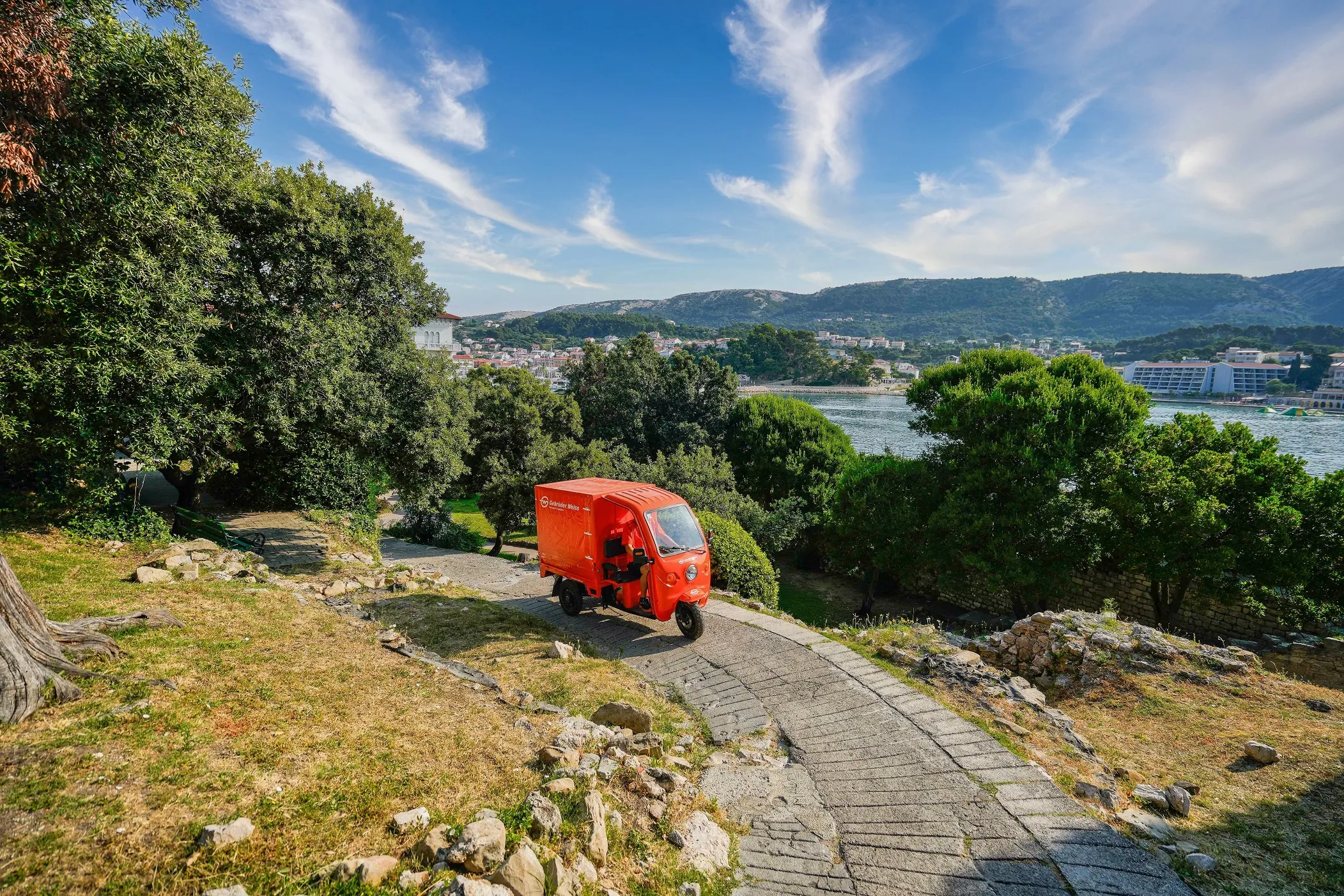
Logistics firm Gebrüder Weiss has started using electric tricycles for deliveries to private homes and companies on the Croatian islands of Rab and Lošinj.
It says the low-noise electric vehicles are easy to manoeuvre, making them ideal for deliveries in small towns and tourist resorts during holiday season.
"It is important to maintain the islands’ authenticity and uniqueness," says Barbara Bujačić, country manager Croatia at Gebrüder Weiss.
"By using our electric tricycles to provide delivery services we help the island oases retain their charming character. And our customers will receive the goods they ordered online in an eco-friendly manner."
The trike can transport total weights of 500kg and cover 50km on one battery charge.
Gebrüder Weiss Croatia has also recently started to use electric vans for deliveries to final customers in Zagreb, with the vehicles covering 170km on one charge, allowing up to 35 eco-friendly deliveries per day.
Batteries are charged via the company’s own photovoltaic system recently installed at its main location near Zagreb. Solar panels installed on the logistics facility's roof boast an annual total peak performance of 500 kilowatts and contribute to saving about 107 tonnes of CO2 per year, Gebrüder Weiss says.
It also uses electric trucks in the Greater Vienna metropolitan area, Austria, and the company has used hydrogen trucks in Switzerland since 2021.
More electric and hydrogen trucks are scheduled for Germany next year.







